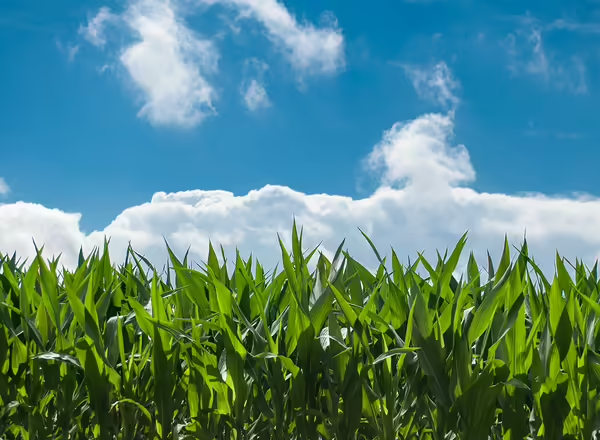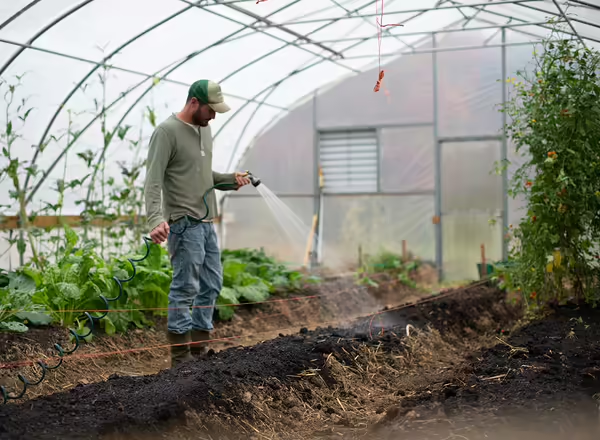Providing Information You Trust
Extension is a source you can trust.
The thing you need most is advice you can trust. Illinois Extension uses unbiased information from University of Illinois to provide practical production recommendations to help farmers, producers, industries, homeowners, communities, and agencies.
Extension has one mission: The education of people. There are many pathways because the needs of the state are diverse. That's why we offer a range of strategies to develop knowledge and transform lives.
- Direct education. Online training, conferences, seminar series, presentations, field days, demonstrations, volunteer service activities.
- Expert Assistance. Analytic reports, certifications, phone, email, and in-person consultations; answer desks; hotlines; web-based answer services
- Resources and services. Websites, videos, fact sheets, manuals, calculators and apps, community gardens
- Outreach. Blog posts, social media, television and radio appearances, newspaper columns, newsletters
- Partnerships. State and local agencies, community organizations, industry groups, not-for-profits, stakeholder networks
- Applied Research. Formal research, trials, scouting
Our work on food and agricultural production and a safe and accessible food supply focuses on field crop production, livestock production, specialty crops, small farms, urban food systems, safe food production and handling, food access, and managing environmental impacts from agriculture.
In the areas of home and community landscapes, our areas of focus include native plants, sustainable home and community landscapes, green industry, vegetable gardening, and more.

Agriculture and agribusiness educators work with producers, Illinois residents, and other stakeholders, including commercial field crop producers and livestock producers, Certified Crop Advisors and other agriculture professionals, specialty growers, local and urban food system participants, gardeners, schools, youth, special populations, and other community members. We partner with state and local organizations and work with faculty and other experts to connect people with the most recent research and information.

- Educators can work with you to identify audiences that can use your research, as well as identifying effective channels for the target audience.
- Educators can keep you informed of the issues of critical interest to targeted stakeholder groups, and any research needs identified by stakeholders.
- Want to work an outreach component into a grant? Extension educators can partner on developing relevant material and dissemination.
- Educators can help facilitate collaboration with stakeholders in priority areas.
- Extension can help coordinate citizen science collaborations through its Master Gardener and Master Naturalist programs.
Meet Our Teams
- An Extension educator has a doctorate or master’s degree and uses their specialized expertise to develop educational and research programming in a targeted content area. Most educators are based in field units and work on both local and statewide priority programs and goals.
- Educators are experienced in translating research through a variety of effective channels to provide evidence-based education relevant to stakeholder/audience needs.
- Educators stay in touch with audience needs through needs assessments; collaboration with state and local councils and stakeholder groups; individual consultations; and other outreach activities.
- Educators may conduct applied research to provide evidence of effective approaches for stakeholders.
Find our latest information on these topics
Agriculture Agricultural Safety Animal Science Annie's Project Beef Cattle Certified Crop Advisor Climate Commercial Agriculture Commercial Vegetable Production Community Gardens Composting Conservation Corn Cover Crops Crop Disease Crops Dairy Cattle Dicamba Drainage Drones Farm Business Management Farm Safety Farmers Markets Flowers Food Access Food Safety Food Sanitation Fungicide Gardening Hay Hemp Herbs Horticulture Houseplants Insect Pests Insecticide Integrated Pest Management Invasive Species Lawn Care Livestock Local Foods Small Farms Manure Management Master Gardeners Native Plants Pasture Pesticide Pesticide Label Plant Clinic Plant Disease Plant Health Care Pollinator Habitat Ponds Private/Commercial Applicator PSEP Training Shrubs Small Farms Soil Soybeans Specialty Crops Sustainable Agriculture Tree Fruits Trees Turf Urban Agriculture Urban Gardening Vegetable Gardening Water Weather Weeds Wheat
For information
